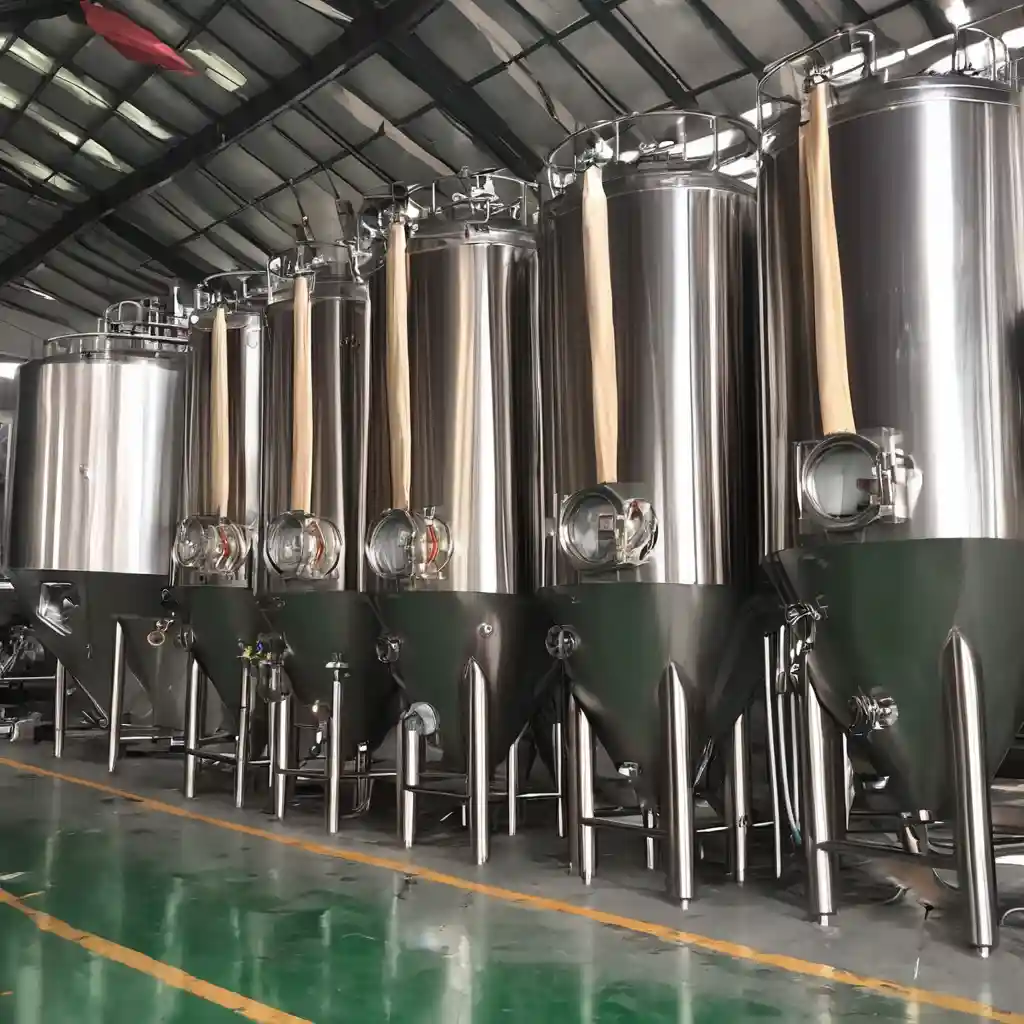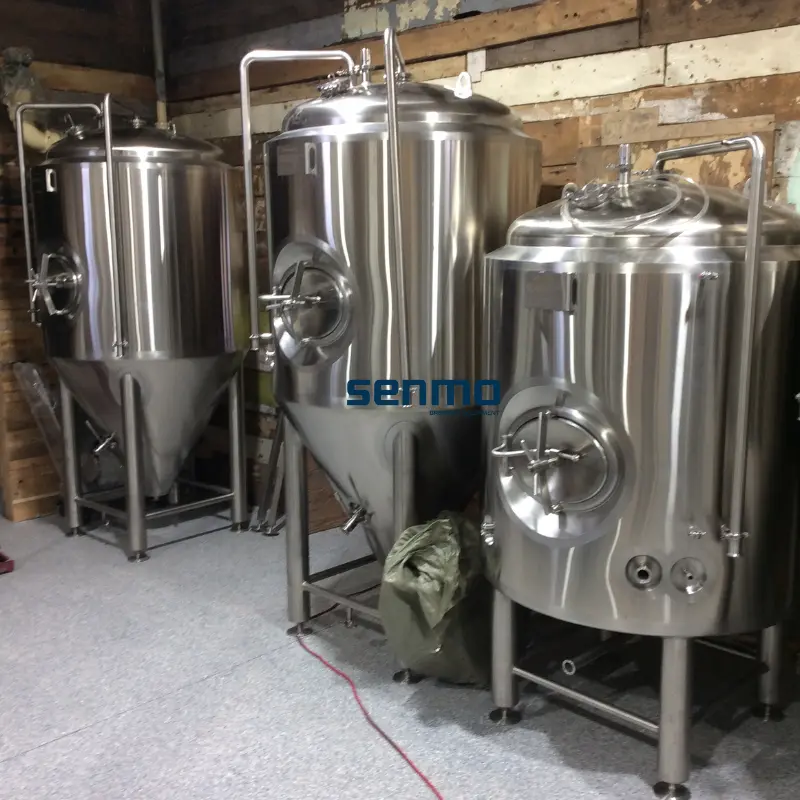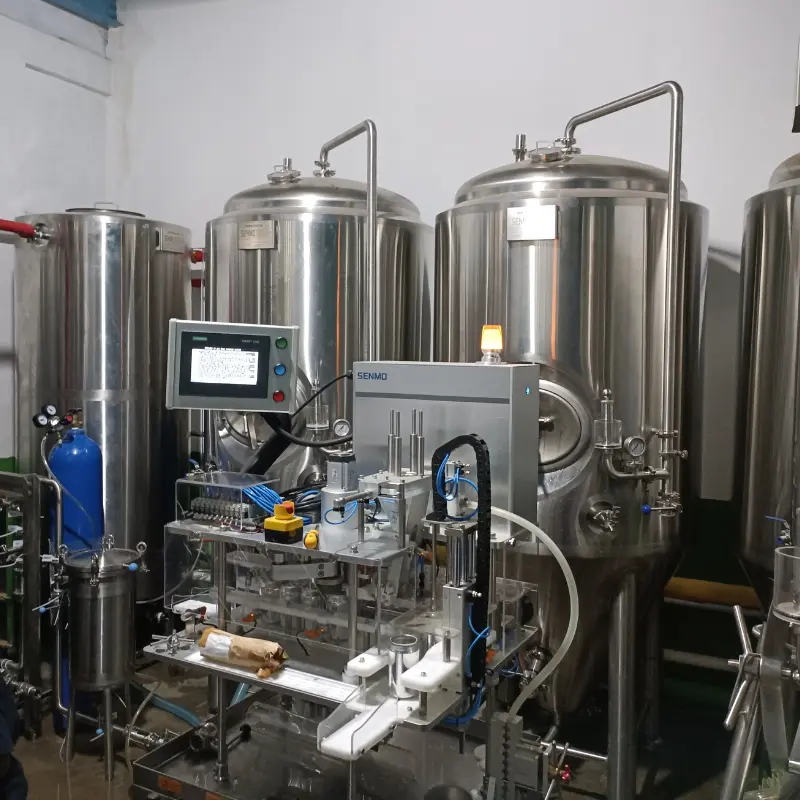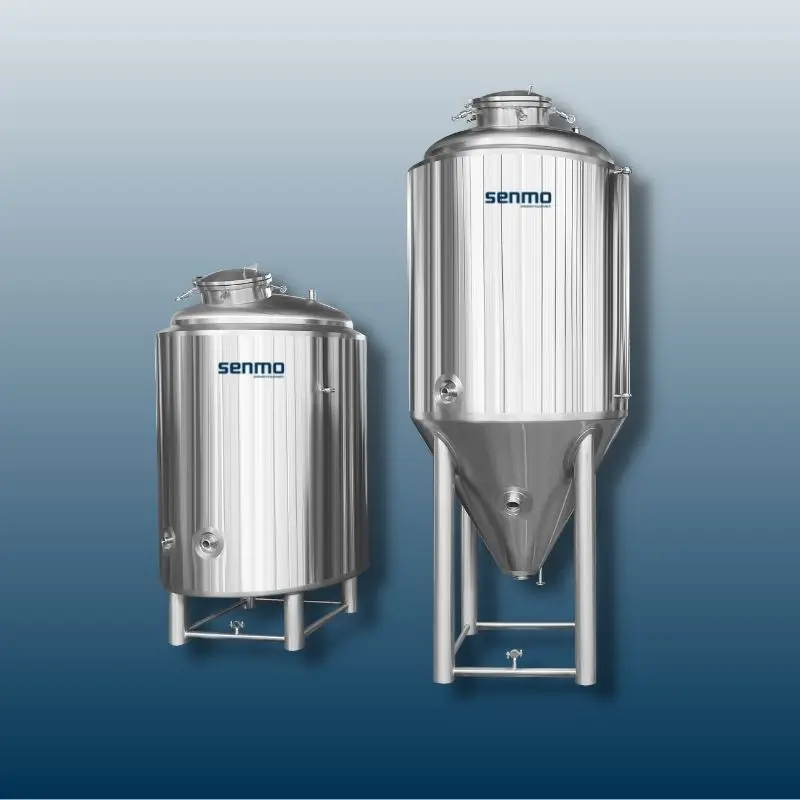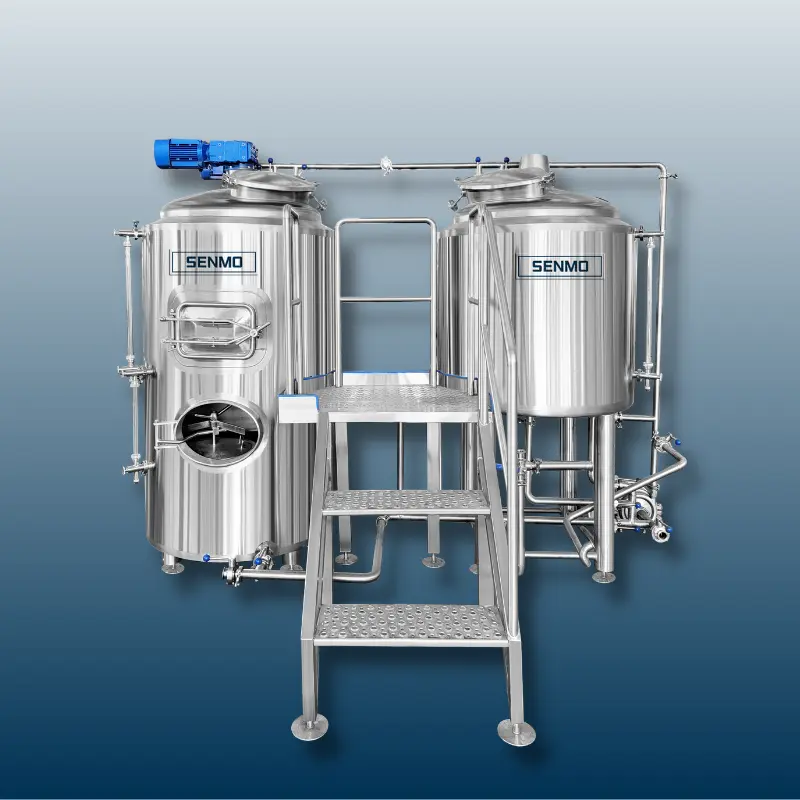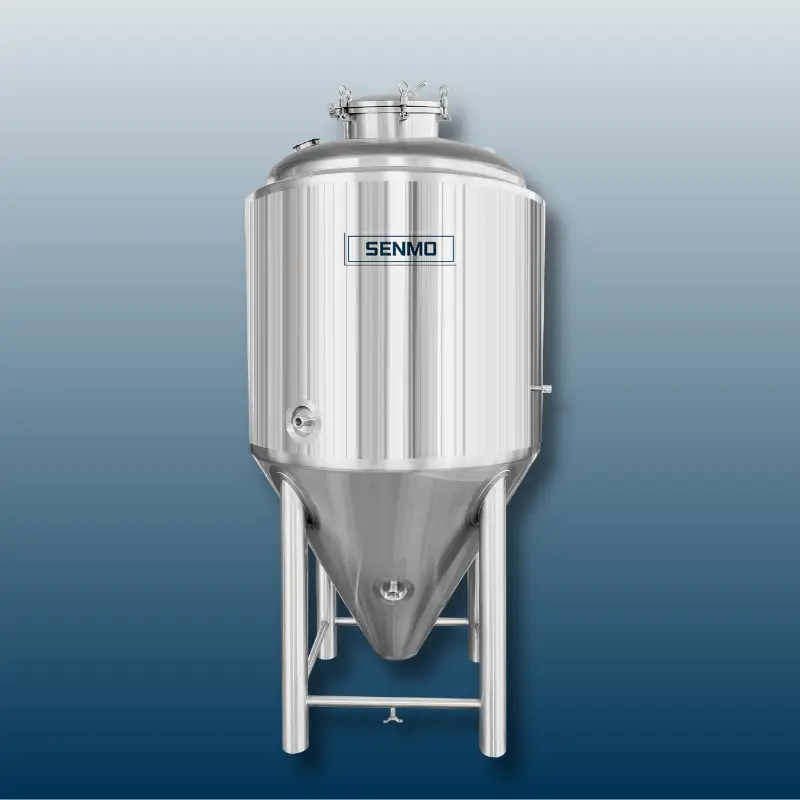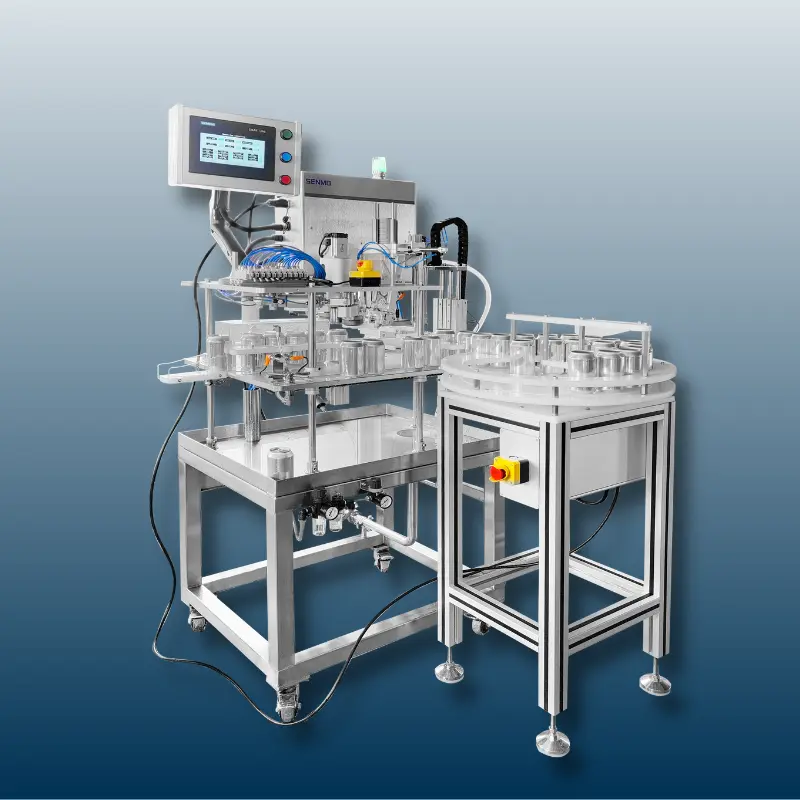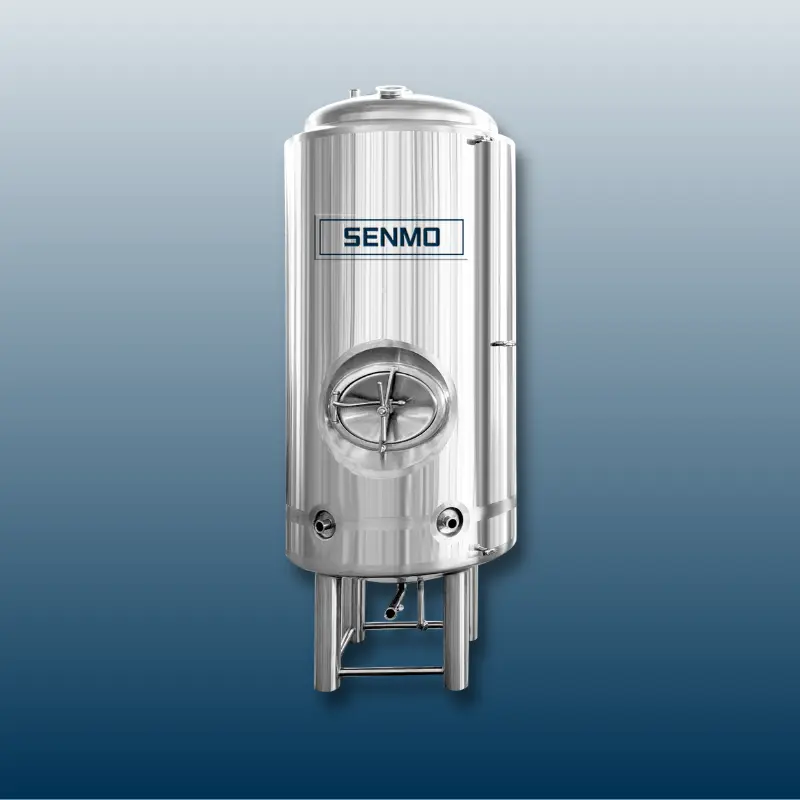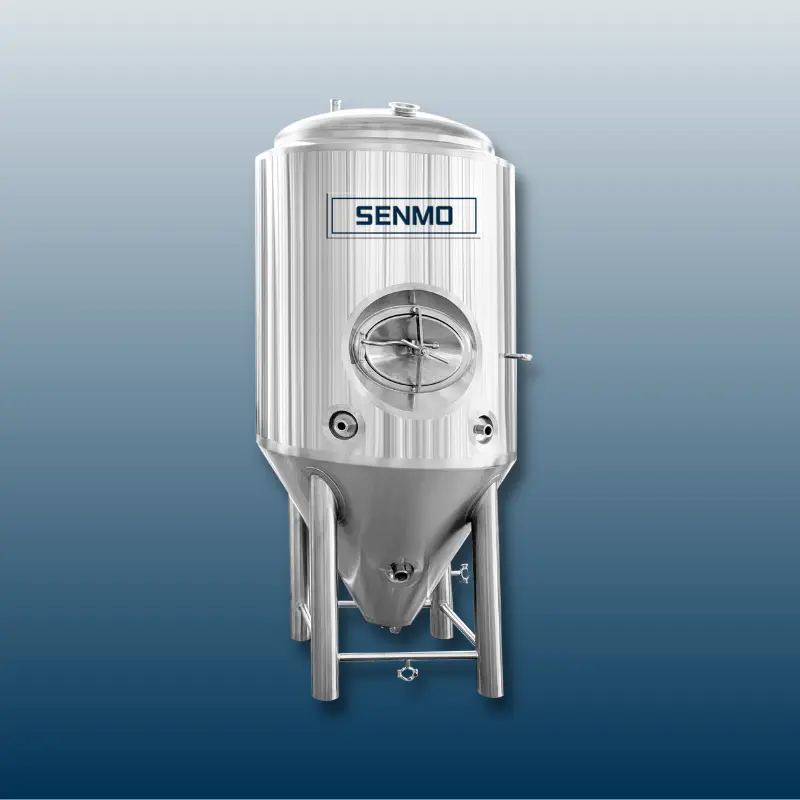In the dynamic world of craft brewing and commercial beer production, maintaining cleanliness and efficiency is paramount to producing high-quality brews consistently. This is where Commercial Beer Fermentation Tanks equipped with CIP (Clean In Place) systems emerge as game-changers, revolutionizing the beer fermentation process. This guide will delve into the world of CIP-integrated commercial beer fermentation tanks, exploring their benefits, operation, and key considerations for breweries looking to enhance their production capabilities.
What are CIP Systems?
CIP, an acronym for Clean In Place, represents a revolutionary approach to cleaning and sanitizing processes within the brewing industry. This technology has transformed the way commercial breweries maintain their equipment, enhancing efficiency, hygiene, and productivity. Here's a detailed exploration of CIP systems and their significance in modern brewing operations.
At its core, CIP involves performing cleaning and sanitizing procedures directly within the equipment without the need for disassembly or manual labor-intensive processes. This closed-loop system revolutionizes the traditional cleaning methods by automating the entire process, thereby minimizing downtime and maximizing production capacity. The CIP system comprises a series of interconnected components, including a reservoir for holding cleaning and sanitizing solutions, pumps for circulating these solutions, and spray nozzles or jets strategically positioned within the equipment to ensure thorough coverage.
One of the primary advantages of CIP systems lies in their ability to comprehensively clean and sanitize every inch of the fermentation tank and associated piping. As the cleaning and sanitizing solutions are circulated through the closed-loop system, they penetrate every corner and crevice, eliminating even the toughest organic residues and impurities. This thorough cleaning not only ensures the highest level of hygiene but also minimizes the risk of contamination, safeguarding the quality of the final product.
Another significant benefit of CIP systems is their efficiency. By automating the cleaning and sanitizing process, CIP eliminates the need for manual labor, reducing downtime and increasing production capacity. This is particularly important for commercial breweries operating on tight schedules and high production volumes. With CIP systems in place, breweries can maintain a continuous flow of beer through their production lines, maximizing profitability and satisfying customer demand.
Moreover, CIP systems offer a high degree of customization and adaptability. Depending on the specific requirements of the brewery, CIP systems can be designed and configured to fit a wide range of fermentation tank sizes, shapes, and configurations. This flexibility ensures that CIP systems can be seamlessly integrated into existing brewery infrastructure, minimizing disruptions to production and minimizing installation costs.
From an environmental perspective, CIP systems also contribute to more sustainable brewing practices. By minimizing water and chemical usage, CIP systems reduce waste generation and simplify disposal processes. This not only benefits the environment but also helps breweries to comply with local regulations and demonstrate their commitment to corporate social responsibility.
CIP systems represent a game-changing technology in the brewing industry. By automating cleaning and sanitizing operations, CIP systems enhance hygiene, improve efficiency, and reduce downtime. With their customizable designs and environmental benefits, CIP systems are becoming an essential component of modern commercial breweries, helping them to produce high-quality beers while maintaining a competitive edge in the marketplace.
Benefits of CIP-Equipped Commercial Beer Fermentation Tanks
Reduced Downtime and Increased Efficiency
In the competitive landscape of the brewing industry, minimizing downtime and maximizing efficiency are paramount to success. This is where CIP (Clean In Place) systems shine, offering breweries a transformative solution that revolutionizes their maintenance and cleaning processes. By eliminating the need to manually disassemble and clean fermentation tanks, CIP systems drastically reduce downtime, unlocking a multitude of benefits for breweries.
Firstly, the elimination of manual disassembly and cleaning significantly cuts down on the time required for maintenance. Traditional cleaning methods often involve breaking down the equipment, scrubbing surfaces with brushes, and rinsing with water, all of which are labor-intensive and time-consuming. With CIP systems, however, the entire cleaning and sanitizing process is automated, with cleaning solutions circulated through the closed-loop system, ensuring thorough coverage without the need for disassembly. This streamlined approach significantly reduces the duration of maintenance cycles, allowing breweries to quickly resume production and minimize lost revenue.
Reduced downtime, in turn, translates into increased production capacity. Without the burden of lengthy cleaning and maintenance procedures, breweries can allocate more time to brewing and packaging, thereby boosting their overall output. This increased production capacity not only helps breweries meet customer demand more effectively but also allows them to expand their product lines and explore new markets. As a result, breweries with CIP systems enjoy a competitive edge over those relying on traditional cleaning methods.
Moreover, CIP systems contribute to increased efficiency in several other ways. By automating the cleaning process, CIP eliminates the potential for human error, ensuring consistent and reliable results. This consistency helps breweries maintain high-quality standards across all their products, enhancing their reputation and attracting loyal customers. Furthermore, CIP systems often incorporate advanced monitoring and control features, allowing brewery staff to remotely monitor the cleaning process and adjust parameters as needed. This real-time visibility and control enable breweries to optimize their cleaning and sanitizing procedures, further enhancing efficiency and productivity.
Lastly, CIP systems contribute to a more sustainable brewing operation. By reducing the need for manual labor and minimizing water and chemical usage, CIP systems help breweries reduce their environmental footprint. This commitment to sustainability not only benefits the environment but also aligns with the values of an increasingly eco-conscious consumer base.
CIP systems represent a powerful tool for breweries seeking to minimize downtime and maximize efficiency. By automating the cleaning and sanitizing process, CIP systems significantly reduce maintenance downtime, freeing up valuable time for production. This increased production capacity and efficiency translate into greater profitability and a competitive advantage in the brewing industry.
Improved Hygiene and Sanitation
In the brewing industry, hygiene and sanitation are paramount to ensuring the safety and quality of the final product. CIP (Clean In Place) systems represent a game-changing technology that elevates hygiene control to new heights, providing breweries with unparalleled assurance of cleanliness throughout the production process.
At the core of CIP systems lies their ability to thoroughly clean and sanitize every inch of the fermentation tank and its accessories without the need for manual disassembly. This comprehensive approach ensures that no hidden corners or crevices go uncleaned, minimizing the risk of contamination by microorganisms such as bacteria, yeast, and mold. According to industry studies, CIP systems have been shown to reduce microbial contamination by up to 99.99%, ensuring that beer is produced in a sterile environment.
The effectiveness of CIP systems is further enhanced by their use of specialized cleaning solutions and advanced circulation techniques. These solutions are designed to penetrate and remove even the toughest residues, including sugars, proteins, and organic matter, that can accumulate during the brewing process. By circulating the cleaning solution through the closed-loop system, CIP systems ensure that every surface is evenly exposed to the cleaning agents, eliminating the possibility of missed spots or uneven cleaning.
The impact of improved hygiene and sanitation on beer quality is significant. Clean tanks and equipment prevent off-flavors and odors from developing, ensuring that beer retains its intended characteristics and tastes fresh and pure. This consistency in quality not only satisfies customers but also helps breweries maintain their reputation and build brand loyalty.
Moreover, CIP systems contribute to reduced spoilage rates and increased shelf life. By minimizing the risk of contamination, CIP systems help breweries avoid costly product recalls and wastage. In fact, studies have shown that breweries using CIP systems experience up to a 50% reduction in spoilage rates compared to those relying on traditional cleaning methods. This not only saves breweries money but also reduces their environmental footprint by minimizing waste disposal.
To illustrate the effectiveness of CIP systems, consider the following example: A mid-sized brewery that switched to a CIP system from manual cleaning reported a significant reduction in microbial contamination and an improvement in beer quality. Specifically, the brewery noted a decrease in off-flavors and a more consistent taste profile across all batches. Additionally, the brewery experienced a reduction in spoilage rates, resulting in increased profitability and customer satisfaction.
CIP systems offer breweries an unparalleled level of hygiene control, ensuring that every inch of the fermentation tank and its accessories is thoroughly cleaned and sanitized. This minimizes the risk of contamination, maintains beer quality standards, and contributes to reduced spoilage rates and increased shelf life. By investing in CIP systems, breweries can safeguard their reputation, satisfy customers, and drive profitability.
Consistent Cleaning Results
Automated CIP (Clean In Place) systems represent a significant advancement in the brewing industry, providing breweries with a means to ensure consistent and reproducible cleaning results across every cleaning cycle. By eliminating the variability introduced by manual cleaning procedures, automated CIP systems guarantee that every inch of the fermentation tank and its accessories is thoroughly cleaned and sanitized, thereby minimizing the risk of contamination and maintaining beer quality standards.
Reduced Variability: Manual cleaning procedures are inherently variable, as they rely on the skill, attention, and consistency of the individual performing the task. Automated CIP systems, on the other hand, follow a predefined program for each cleaning cycle, ensuring that every step is executed with precision and uniformity. This eliminates the potential for human error and ensures that the same level of cleanliness is achieved every time.
Improved Hygiene and Sanitation: Consistent cleaning results are crucial for maintaining high hygiene and sanitation standards in the brewing process. Automated CIP systems use specialized cleaning solutions and advanced circulation techniques to penetrate and remove even the toughest residues, ensuring that every surface is thoroughly cleaned and sanitized. This minimizes the risk of contamination by microorganisms and helps breweries maintain their beer quality standards.
Increased Efficiency: Automated CIP systems streamline the cleaning process, reducing the time and labor required for each cleaning cycle. By eliminating the need for manual disassembly and reassembly of equipment, automated CIP systems allow breweries to focus their resources on other critical aspects of the production process. This increased efficiency not only saves time and money but also helps breweries maintain a competitive edge in the market.
Data and Examples
To illustrate the benefits of consistent cleaning results with automated CIP systems, consider the following data and examples:
Reduced Contamination Rates: Studies have shown that breweries using automated CIP systems experience significantly lower contamination rates compared to those relying on manual cleaning procedures. This is due to the fact that automated CIP systems provide a more thorough and consistent cleaning, eliminating the potential for missed spots or uneven cleaning.
Improved Beer Quality: Consistent cleaning results with automated CIP systems contribute to improved beer quality. By minimizing the risk of contamination, automated CIP systems help breweries maintain their beer's intended characteristics and prevent off-flavors and odors from developing. This consistency in quality not only satisfies customers but also helps breweries maintain their reputation and build brand loyalty.
Increased Efficiency: Automated CIP systems can significantly reduce the time required for cleaning and sanitizing equipment. For example, a mid-sized brewery that switched to an automated CIP system from manual cleaning reported a reduction in cleaning time by up to 50%. This increased efficiency allowed the brewery to allocate more resources to other critical aspects of the production process, such as quality control and product development.
Automated CIP systems offer breweries a means to ensure consistent and reproducible cleaning results across every cleaning cycle. By eliminating the variability introduced by manual cleaning procedures, automated CIP systems provide breweries with unparalleled assurance of cleanliness and help them maintain high hygiene and sanitation standards, improved beer quality, and increased efficiency.
Enhanced Employee Safety
In the brewing industry, manual cleaning of large fermentation tanks often involves physically entering the tanks or working in close proximity to them, exposing employees to potential hazards such as slippery surfaces, exposure to harsh chemicals, and the risk of injury from heavy equipment. Automated CIP (Clean In Place) systems play a pivotal role in enhancing employee safety by automating the cleaning process and significantly reducing the need for direct human intervention.
Reduced Exposure to Hazards: Manual cleaning of fermentation tanks often requires workers to handle harsh cleaning chemicals and work in confined, potentially hazardous spaces. Automated CIP systems, on the other hand, encapsulate the cleaning process within the tank, minimizing exposure to hazardous chemicals and eliminating the need for workers to enter the tank or work in close proximity to it.
Elimination of Physical Strain: Manually cleaning large fermentation tanks can be physically demanding, requiring workers to lift and maneuver heavy equipment and cleaning supplies. This can lead to strain injuries and fatigue, which can compromise worker safety and productivity. Automated CIP systems automate the cleaning process, eliminating the need for manual labor and reducing the risk of physical injury.
Improved Ergonomics: By automating the cleaning process, automated CIP systems also improve ergonomic conditions for employees. Workers no longer have to contort their bodies or work in awkward positions to reach difficult-to-access areas of the tank. This reduces the risk of musculoskeletal disorders and other repetitive strain injuries.
To further illustrate the benefits of enhanced employee safety with automated CIP systems, consider the following data and examples:
Reduced Injury Rates: Breweries that have implemented automated CIP systems have reported significant reductions in workplace injuries related to tank cleaning. This is because automated CIP systems eliminate the need for workers to enter the tank or work in close proximity to it, reducing the risk of slips, trips, and falls, as well as exposure to hazardous chemicals.
Improved Workplace Safety Culture: By reducing the hazards associated with manual tank cleaning, automated CIP systems contribute to a safer workplace culture. This can lead to increased employee morale, reduced absenteeism due to workplace injuries, and improved overall productivity.
Case Study: A large brewery in Europe reported a 70% reduction in workplace injuries related to tank cleaning after implementing an automated CIP system. The brewery attributed this reduction to the elimination of the need for workers to enter the tanks and the improved ergonomic conditions provided by the automated system.
Automated CIP systems offer breweries a means to enhance employee safety by automating the cleaning process and reducing the need for direct human intervention. By eliminating exposure to hazards, reducing physical strain, and improving ergonomic conditions, automated CIP systems contribute to a safer workplace culture and help breweries maintain a healthy and productive workforce.
Environmental Friendliness
In the brewing industry, environmental sustainability is a growing concern, and CIP (Clean In Place) systems play a significant role in promoting more sustainable brewing practices. By minimizing water and chemical usage, reducing waste generation, and simplifying disposal processes, CIP systems contribute to a greener and more eco-friendly brewing process.
Efficient Cleaning Process: CIP systems are designed to use water efficiently during the cleaning process. They utilize a closed-loop system that recirculates cleaning solutions, minimizing water consumption. Compared to manual cleaning methods, CIP systems can significantly reduce water usage by up to 80% or more (source: industry estimates).
Tailored Cleaning Programs: CIP systems allow for tailored cleaning programs based on the specific needs of the brewery and the type of fermentation tanks being cleaned. This ensures that only the necessary amount of water is used, further reducing waste.
Precise Dosage Control: CIP systems provide precise control over the dosage of cleaning chemicals, ensuring that only the required amount is used. This not only reduces chemical waste but also minimizes the environmental impact of chemical disposal.
Efficient Rinse Cycles: After the cleaning cycle, CIP systems typically include efficient rinse cycles to remove any residual cleaning chemicals from the tanks. These rinse cycles are designed to be as efficient as possible, using only the necessary amount of water to ensure that no chemicals remain in the tanks.
Centralized Waste Management: CIP systems often incorporate centralized waste management systems that collect and dispose of waste generated during the cleaning process. This streamlines the waste disposal process and ensures that waste is handled in an environmentally responsible manner.
Reduced Solid Waste: By automating the cleaning process, CIP systems reduce the need for disposable cleaning materials such as rags, sponges, and other cleaning aids. This not only reduces solid waste generation but also eliminates the need for their disposal.
Easier Waste Segregation: CIP systems often include features that facilitate waste segregation, making it easier for breweries to comply with waste disposal regulations. This can include separate waste streams for different types of waste, such as chemical waste and solid waste.
Compliance with Environmental Regulations: By reducing water and chemical usage and simplifying waste disposal processes, CIP systems help breweries comply with environmental regulations and promote sustainable brewing practices.
Water Savings: A study conducted by a major brewing company found that implementing CIP systems in its fermentation tanks reduced water usage by over 75% compared to manual cleaning methods.
Chemical Reduction: A brewery in the United States reported a 30% reduction in chemical usage after switching to CIP systems for tank cleaning. This reduction was achieved through more efficient chemical dosage control and rinse cycles.
Waste Management: A large European brewery implemented a centralized waste management system in conjunction with its CIP systems. This resulted in a 20% reduction in solid waste generation and improved compliance with waste disposal regulations.
CIP systems contribute to more sustainable brewing practices by minimizing water and chemical usage, reducing waste generation, and simplifying disposal processes. By automating the cleaning process and providing precise control over water and chemical usage, CIP systems help breweries reduce their environmental impact and promote eco-friendly brewing practices.
How CIP Systems Work in Commercial Beer Fermentation Tanks
A CIP system typically consists of a reservoir for cleaning and sanitizing solutions, pumps to circulate these solutions, and spray nozzles or jets strategically positioned within the fermentation tank. The cleaning cycle commences with the circulation of a cleaning solution, such as caustic soda or enzymes, which breaks down organic residues and impurities. This is followed by a rinse cycle with clean water to remove any residue from the cleaning solution. Finally, a sanitizing solution, such as peracetic acid or hypochlorite, is circulated to ensure a microbially safe environment.
Key Considerations for Breweries
System Size and Capacity
Choose a CIP system that matches the capacity and production demands of your commercial beer fermentation tanks. Oversized or undersized systems can lead to inefficiencies and increased costs.
Customization and Integration
Many CIP systems can be customized to fit specific fermentation tank designs and process requirements. Ensure seamless integration with your existing brewery infrastructure.
Energy Efficiency
Look for CIP systems that incorporate energy-saving features, such as heat recovery systems, to minimize operational costs.
Ease of Operation and Maintenance
Consider the training requirements and maintenance schedule of the CIP system. User-friendly interfaces and straightforward maintenance procedures can reduce operational overheads.
Compliance with Regulations
Ensure that your CIP system complies with local food safety and environmental regulations, ensuring that your brewery operates legally and responsibly.
Conclusion
In conclusion, Commercial Beer Fermentation Tanks equipped with CIP systems are invaluable assets for breweries looking to streamline their production processes, enhance hygiene standards, and maintain a competitive edge in the marketplace. By investing in these innovative solutions, breweries can improve productivity, reduce costs, and produce higher-quality beers that satisfy even the most discerning palates.
